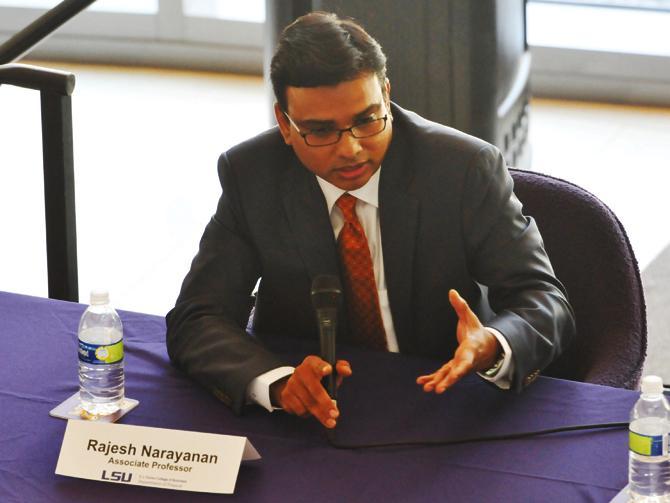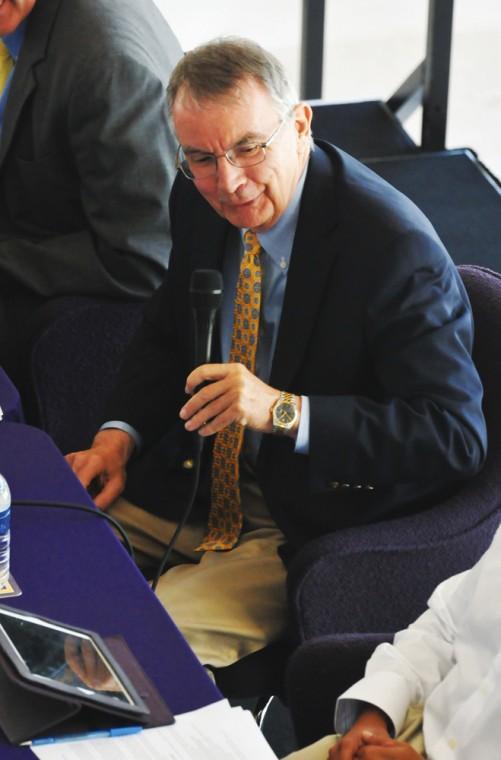Four economics professors agreed Thursday that action should have been taken earlier to save the country from economic crisis during an economic policy forum at the Business Education Complex.
Associate finance professor Rajesh Narayanan said governments typically respond too late and not adequately enough, and this has been true of the United States.
Narayanan said Americans have principles and ideas about taxes that have not been put into action.
“I think at the time, it was unclear how big the stimulus needed to be,” said economics professor Dek Terrell.
Terrell said in any large government, some parts are bound to be ineffective.
The panelists also eventually agreed that presidents have limited influence on the economy.
“They don’t create quantities of jobs,” Terrell said. “But they can react to situations and keep them from getting worse.”
Finance professor Joe Mason said presidents have minimal influence for their first two years in office, and after implementing some of their own policies, they gain more.
Later, the panelists addressed tax reform.
Associate economics professor Areendam Chanda said he considers the tax debate to be the most important to the fate of the presidential election, but he does not know what the effects of the tax plans will be.
“I have not seen any good papers on the correlation between personal income tax and the economy,” Chanda said.
Terrell supported plans like flat rates and former presidential hopeful Herman Cain’s 999 plan, while Narayanan said a panacea for the problems with tax code is impossible.
“When it’s difficult for me as a Ph.D. economist to understand my tax form, there’s a problem,” said Terrell.
Terrell said one obvious solution is to reinstate the payroll tax to help with social security funding. This will be seen by the American public as raising taxes on the average worker, but Terrell said it’s necessary.
Mason said the tax code needs to have a social dimension that is “palatable to the American public.”
The original problem in the economy, according to Mason, stemmed from a lack of bank and investment accountability. The average person could not determine what would be a good investment.
The issue now is that these bad investments are being liquidated, and the businesses aren’t acknowledging it, Mason said.
Connie Bernard, an MBA student, said she wished the panelists could have gone into more depth.
____
Contact Megan Dunbar at mdunbar@lsureveille.com






